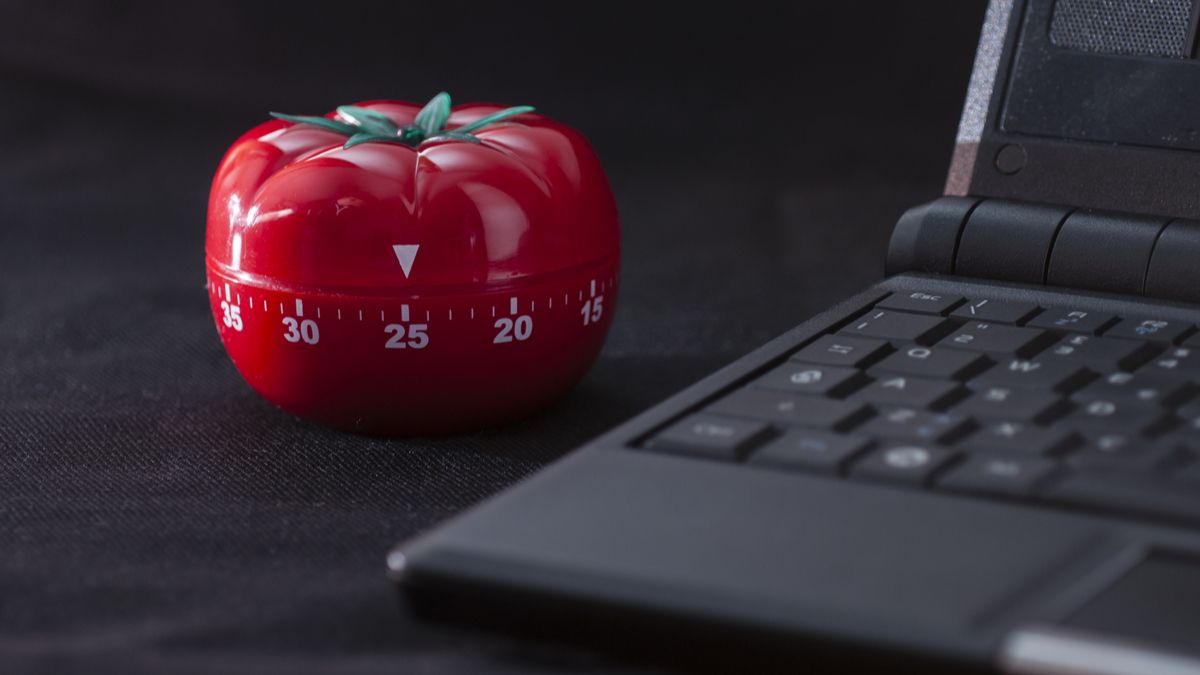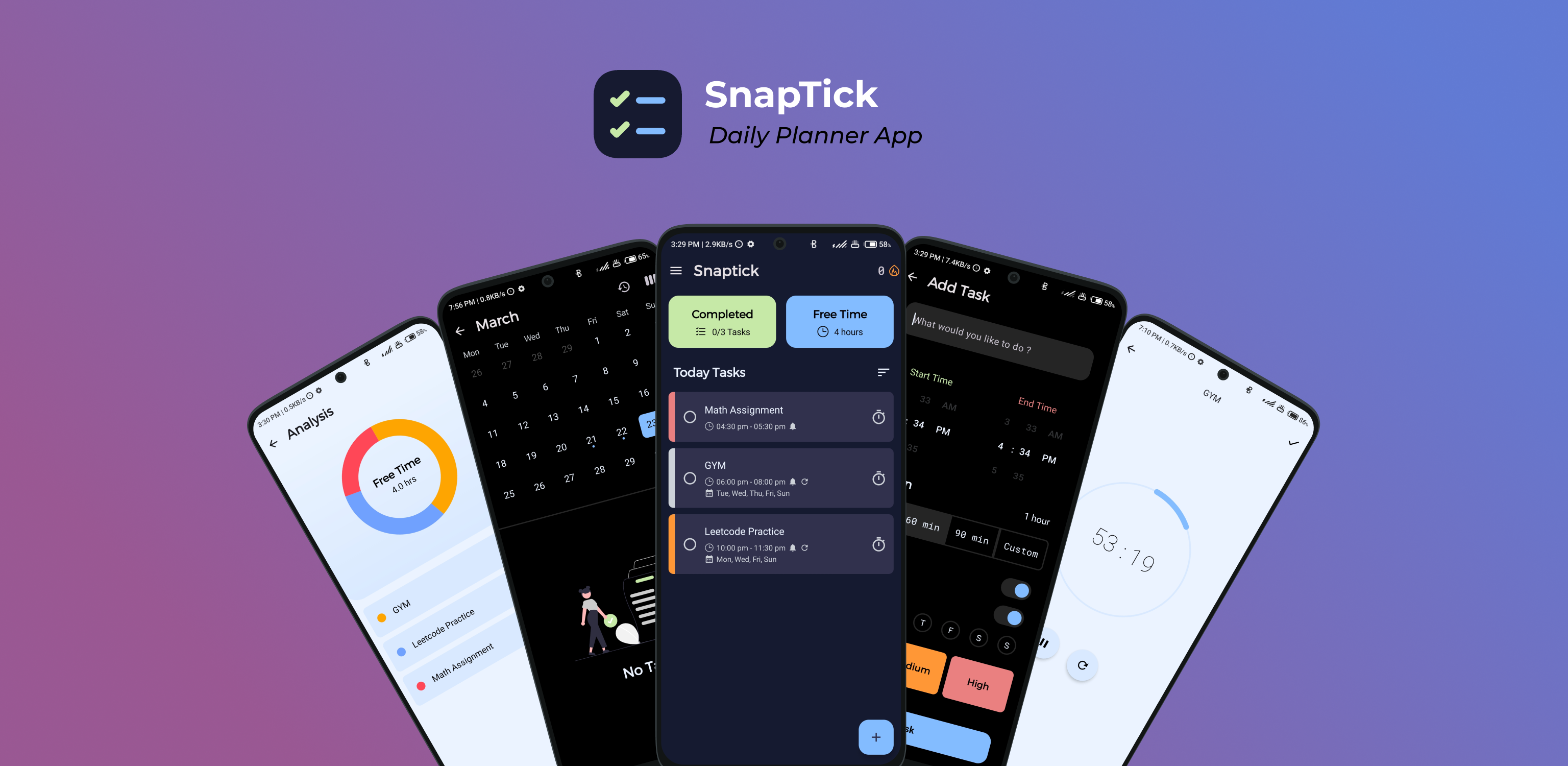If you’re always running from one deadline to another, a time-tracking app can help you build effective time-management habits. They’ll help you concentrate on doing deep work and actually free up more hours in the day for doing other stuff.
The Perfect Time Tracking App
I’m always on the lookout for the perfect time-tracking app. As a freelancer, I’m often juggling multiple projects with multiple deadlines and a seemingly endless list of tasks. On top of that, I use the Pomodoro technique to stay sharp and focused. In Pomodoro, you divide your work hours into chunks or “pomodoros” and then take a quick break after you’ve completed a single Pomodoro. A popular Pomodoro split is 25-5, where you do deep work for 25 minutes, take a 5-minute break, and repeat. I use a 60-10 split.
A classic Pomodoro timer
My perfect time-tracking app will have a built-in Pomodoro timer, and it will keep track of my completed Pomodoros. Each Pomodoro could be assigned to a particular project or task. Perhaps I could even assign a quick color code to show how focused I was at the end of a particular chunk.
It’d let me review the tracking analytics to see the hours of the day or night when I’m most focused. It could show me how much deep work I did in a given week or month. Which projects I’m focusing the most on and where I’m lacking. And the projects that are eating up most of my time. Integrating a Pomodoro timer with robust analytics and project management would make the perfect time-tracking app for me.
But sometimes, I just like to track my work hours and nothing else. Some projects don’t require the laser-focused approach that Pomodoro calls for. If I’m just researching, brainstorming, or communicating with clients, I want to keep a record of that, too. That’ll require a simpler timer. I’d just tap a button, and it’d start counting the hours or minutes until I paused and restarted the timer. Each session would be assigned its project tag. At the end of the day, it could show me my timesheet and report insightful analytics for each project.
1 Super Productivity
Super Productivity is a free cross-platform and open-source project. It’s a thoughtful and feature-rich time tracker. And it’s the closest I can get to the perfect time-tracking app.
This app takes the guesswork out of time management and assists you with building strong time management skills from day one. It definitely has a little bit of a learning curve because the app has every feature you could ask for. But the returns are well worth it.
I’ve started to feel more in control of my time and projects ever since I incorporated SuperProductivity into my daily workflow—fewer and fewer missed deadlines. I focus better during my work hours—and happier clients.
When you start your work day, just fire up SuperProductivity and add your list of tasks for the day to the relevant projects. You can create multiple projects. They’ll all appear in a timeline—your whole workday neatly laid out.
Then you can just press the play button on top and start tracking the time for a given task. When you’re done, tap the check button and mark it done. Work through the entire task list and click “Finish Day” to evaluate your day’s progress with helpful insights.
If you need to get something done but not on the same day, you can plan and schedule each task and make an estimate of how long it’ll take you. They’ll appear on a list of the scheduled tasks. You can even create repeated tasks that stick in your Scheduled Tasks tab.
If you forget to click the play button, SuperProductivity will remind you that you haven’t been tracking time for the given duration. Then you can click “Add to Task” to assign that untracked time to any task.
SuperProductivity has a Pomodoro timer, too. You can specify the duration of the session, short breaks, and long breaks. It can be customized with a few other tweaks, too.
To help with your productivity, there’s a Focus mode, Break Reminder, Calendar integration, analytics reporting, and sync support across devices.
It’s available on the Google Play Store.
2 Overload
Overload is another free, open-source tracker for Android devices. It has a nice Material You design, and a simple set of features.
It just has a calendar and a start/stop button. When you tap “Start,” it’ll start logging your work hours. When you’re pausing or ready to clock out, tap “Stop.” It’ll give you a clear picture of every work session throughout your day.
You can also check the record for yesterday or the day before yesterday. There’s a calendar tab where you can tap any date and view the work history.
Overload isn’t available on the Google Play Store. But you can download it for free from the F-droid store or sideload the APK file.
3 Snaptick
Snaptick is another simple time tracker. But instead of tracking sessions like Overload does, Snaptick tracks time for a given task. To start, create a task and specify the time it’ll take to complete it. Repeat the same for every task on your to-do list. Tap the clock icon to start the timer.
If your phone distracts you a lot, Snaptick is a great tool to stay focused. It’ll reset the timer if you leave the timer screen. But if you have to pause, there’s a pause button that’ll save your progress and resume the session when you come back to the screen.
I also love the dynamic “Free Time” tile that shows you how much free time you have left on a given day after you finish your tasks.
Snaptick is also a free and open-source app. You can download it from its official GitHub repo.
4 Clockify
Clockify is specifically designed for freelancers and team projects. It has some neat project management and reporting features. Teams or individual freelancers can keep track of billable hours and create invoices based on that within the app. You can even set it to auto-track your usage on apps and websites.
Of course, you can create projects, tasks, and tags to keep track of your work manually. It has idle detection and a Pomodoro timer built into the app. There’s also a Kiosk mode for letting your team members clock in and out from a dedicated device.
It’s near perfect, but for me, it’s a little bloated because I like to keep my finances separate from my productivity apps. Since Clockify is mostly geared towards small businesses, it needs those features. If that’s you, Clockify is definitely worth a try.
It’s free and cross-platform. You can grab it from the Google Play Store.
5 Simple Time Tracker
Simple Time Tracker is perfect for repetitive tasks or multitasking. To start, you create a “card” which is a preset with a tag and duration. Or you can select from the list of default cards.
Tap a card to activate the timer. You can set multiple cards to run at the same time. Analytics tabs will show your activities and sessions in a timeline and chart format.
You can install the Simple Time Tracker from the Google Play Store. It’s free and open source.
6 Goodtime Productivity
If you just need a nice Pomodoro timer with analytics, try Goodtime Productivity. It has a clean, elegant, distraction-free design with just a big timer stretching across the whole screen.
You can label Pomodoros or view statistics. It’ll give you a daily, weekly, or monthly overview of your total productive time and Pomodoro history. If you’re trying to incorporate the Pomodoro technique into your daily workflows effectively, I cannot recommend this app enough.
Get it from the Google Play Store.
Time management can be frustrating or even daunting, but the right app can truly help you stay on top of your projects and deadlines.






